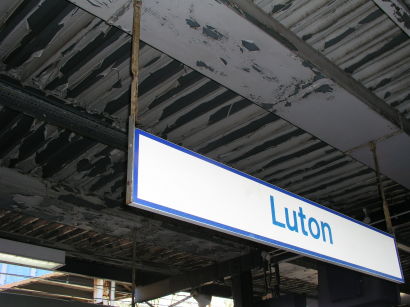A £50 million DfT grant intended to upgrade the ten worst stations in Britain following the Station Champions' report last November has been scrapped as part of the Government's budget cuts.
The Department for Transport has lost £683 million from its budget for this year, as its share of a £6.2 billion reduction in spending ordered by the Chancellor of the Exchequer.
At first, the DfT had only outlined the reductions following the Chancellor's announcement. They include £309 million withdrawn from councils and a proposed cut of £108 million for Transport for London.
Another item on the brief DfT list had been £100 million cut from the grant to Network Rail, and it's now been revealed that half that sum is the £50 million which had been allocated to station upgrades in November 2009.
This followed the publication of the Better Rail Stations report, which had been prepared by former Virgin CEO Chris Green and Sir Peter Hall.
They had warned that the poor state of many stations was ‘becoming an obstacle to rail growth’, and outlined a series of essential improvements. They had also named the ten worst important stations in Britain.
The transport secretary at the time, Andrew Adonis, had welcomed the report and announced an immediate grant of £50 million as a first step. He had said he supported the Champions' call for a comprehensive list of minimum standards for all stations, aimed at improving the daily travelling experience of passengers and attracting more passengers on to the railways.
The stations now set to lose out are Clapham Junction, Barking, Stockport, Manchester Victoria, Preston, Wigan North Western, Liverpool Central, Warrington Bank Quay, Crewe and Luton.
Network Rail pointed out that funding for some of the stations is also coming from other sources. Most work on Manchester Victoria will still go ahead, for example, because only £5 million of the £30 million to be spent there was coming from the Better Stations fund in any case. Clapham Junction is also benefiting from other funding.
However, if funding gaps cannot be closed economies will have to be found instead, by reducing the scope of the work.
A Network Rail spokesman added that the company was still considering how it could save the remaining £50 million from the £100 million DfT cutback, and that talks were continuing.
Meanwhile, the Association of Train Operating Companies said: “Given the current economic climate, we recognise the need to make savings in public spending wherever possible. Nonetheless, passengers affected will be disappointed that money set aside to improve their stations will no longer be made available.”
ATOC called again for operators to have longer franchises, which it said would encourage them to make greater and more efficient investments in stations.
Station Champions' upgrade scheme scrapped
26th May 2010


